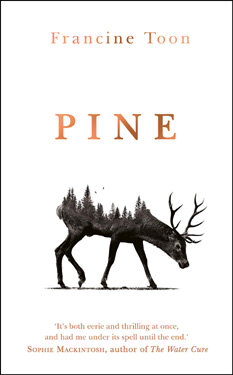It’s a strange coincidence that within the novel “American Dirt” there’s a scene which takes place in a bookstore where a character remarks: “Sometimes the experience of reading can be corrupted by too many opinions.” Since this novel’s publication last month it’s been beset by heavy criticism from the Latin community, Latinx writers and the wider literary world. It’s also had defenders such as writer Sandra Cisneros and Stephen King (who, incidentally, gets name-checked in the novel when the central character finds one of his books which “transports” her to fondly-remembered better days from her past.)
A balanced look at some of the debates about this book was given in this NPR programme which I’d recommend listening to: https://www.npr.org/2020/01/29/800964001/digging-into-american-dirt?t=1582044209799
I wanted to make up my own mind about this novel but because I’ve been following how it’s been so widely debated and discussed in the media I couldn’t read it without these warring opinions in mind. Normally I prefer to read a book before looking at any reviews however with inflammatory accusations such as writer/critic Myriam Curba who calls it “trauma porn that wears a social justice fig leaf” and Luis Alberto Urrea who calls it a “minstrel show” it felt right to consider many different opinions alongside reading the novel itself. That’s not to say critics don’t get it wrong sometimes, but because the novel is partly Cummins’ self-conscious exercise to raise awareness about the migrant experience (as she explains in the afterward) it felt both useful and important to also listen to voices from the actual region it portrays.
I know this has probably unfairly influenced my reading of the novel and I certainly didn’t read it just to bash it, but it also made me vigilant about the self-conscious mechanics of its construction. My overall impression is that it is primarily a straightforward thriller where a mother named Lydia and her eight year old son Luca are on the run from a dangerous entity which frequently comes close to catching up with them. It could be any sinister force which is following them but here it is the cartel who has decimated her family and actively searches for Lydia. The story is set over a perilous migrant trail between Mexico and the United States. In other words, it’s a somewhat generic plot placed within a politically-charged setting.
I can understand the accusation that this is a novel about Mexican immigrants written for a white/American audience. Lydia is a middle-class owner of a bookshop: a sympathetic character who is probably very similar to the novel’s (presumed) reading audience. During her journey she devises a means of escaping the cartel by hiding amongst groups of migrants and has a startling moment of realisation that she won’t just be posing as a migrant but has actually become one. I think this is the point which is intended to transform the reader from being sympathetic to the plight of migrants to knowing that anyone can become one under certain circumstances. While this is an effective technique to draw the target audience in it also feels heavy handed.
The situation is also given a ridiculously heightened melodramatic element where the head of the cartel was formerly a customer in Lydia’s bookshop. Because she and this criminal leader developed a strong intellectual and emotional relationship, the chase after Lydia and her son is deeply personal. I felt this forced emotional element really pushed this book more into the generic thriller realm. It detracted from an ability to feel like this is a situation that could really happen. Likewise many of the people Lydia meets along her journey came across more like pieces in the puzzle for the migrant experience Cummins sought to portray rather than having their own integrity. They often come across as voice boxes self-consciously explaining the mechanics and terrain of being a migrant.
In terms of the writing, Cummins sometimes has awkward ways of translating emotional experience into the physicality of her characters. For instance, she describes how “Lydia funnels gratitude into the slow blink of her lashes.” I felt some laboured passages like this strove too hard to capture a visceral sensation. Again, I didn’t read this novel simply to criticise it. And there were moments when I felt emotionally engaged with Lydia and Luca’s characters. The way in which grief sometimes burst into moments of their gruelling ordeal and how they had to supress these feelings or memories in order to deal with the present was meaningfully portrayed. But overall I felt like I was being taught a lesson through a form of suspenseful entertainment rather than being presented with a humanized portrait of the migrant experience.
I think the debates surrounding this novel have raised some important issues surrounding publishing, the question of fiction’s intention and the degree to which literature can inspire empathy or complacency. However, I have to say, the whole furore has left me with a sour feeling. The excessive vitriol and hate heaped upon Jeanine Cummins feels unwarranted, but the content of this novel and the manner in which it’s been published is certainly not above critique. Cummins definitely didn’t see herself as writing in isolation about this subject matter and thanks a number of Latinx writers in the afterward of her novel. One of the good things that has come out of all the debate surrounding the book are lists of other authors that have written about this experience including this Guardian article, an article in the Texas Observer and countless social media threads giving shoutouts to other books about immigration. I look forward to reading some of these books and was glad to recently read Mexican author Fernanda Melchor whose novel “Hurricane Season” has just been translated into English. All these lists of books reinforce the fact that literature is at its best when it includes a plethora of voices rather than just one book which is hyped as “the book” about a particular subject matter.

























